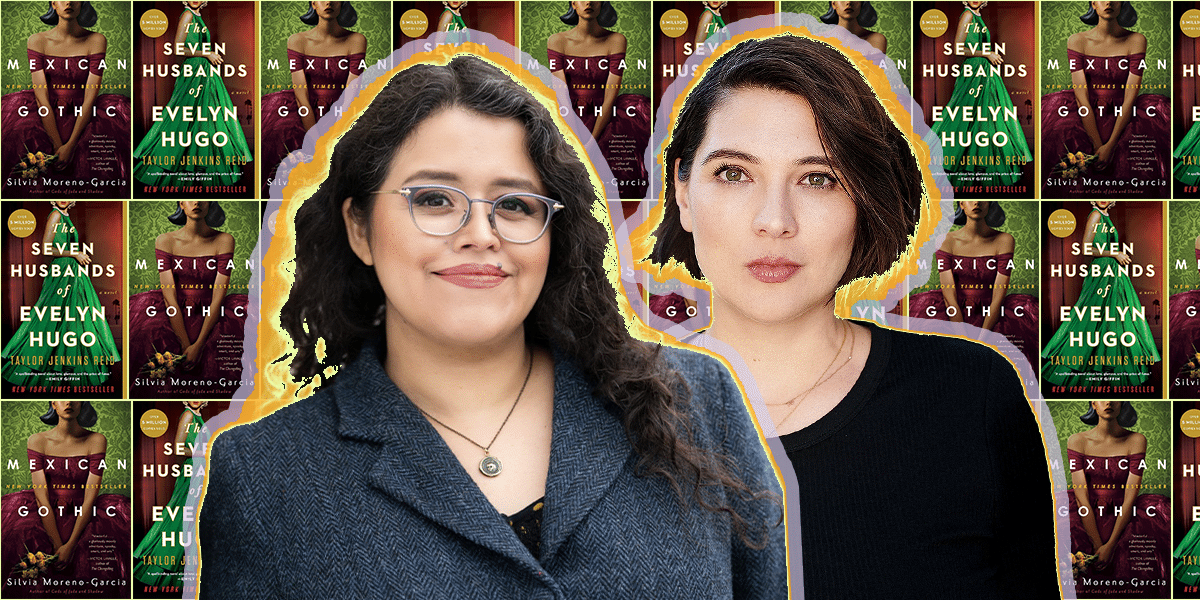Book adaptations are a complicated subject at the best of times. Turning a book into a movie or a TV show is not a simple thing. And yet fans have a right to be disappointed by the announcement that Hulu dropped the option for Silvia Moreno-Garcia’s Mexican Gothic, meaning they aren’t making the adaptation. Latine fans have the right to be particularly frustrated as we often find ourselves looking for representation in adaptations like the upcoming one of The Seven Husbands of Evelyn Hugo by Taylor Jenkins Reed.
The problem is obvious. The Seven Husbands of Evelyn Hugo is many things, but representation of the Latine community isn’t one of them. And yet it’s the project that’s getting a big-budget Netflix adaptation, with Russian Doll co-creator Leslye Headland directing. Jenkins Reed will executive produce and Liz Tigelaar is set to write the script. With all of these names behind it, even if the titular Evelyn Hugo is indeed played by a Latina actress, the adaptation will be nothing more than a white creative’s idea of what the Latine community is.
But then again, that’s exactly what The Seven Husbands of Evelyn Hugo is in the first place. The character is the daughter of Cuban immigrants, and therefore Latina, but Taylor Jenkins Reid, the author of the book is not. For Hollywood, however, this is the acceptable version of Latine representation, one presented through a white lens. It doesn’t even need to be true, because it hits all the “right notes.”
For Hollywood, [The Seven Husbands of Evelyn Hugo] is the acceptable version of Latine representation, one presented through a white lens.
Lissete Lanuza Sáenz
Mexican Gothic, meanwhile, was written by Mexican-Canadian writer Silvia Moreno-Garcia. It’s more gothic horror than The Seven Husbands of Evelyn Hugo’s historical romance. Its main character is called Noemí Taboada, a much harder-to-pronounce name. Moreno-Garcia, its writer, was born and raised in Mexico and only moved to Canada in 2004. It’s a popular book, and it feels much more Latine than The Seven Husbands of Evelyn Hugo. That should be a point in its favor. But in an industry that seems to prefer the veneer of representation rather than its authenticity, the Mexican Gothic adaptation is much easier to sacrifice.
This issue extends further than just book adaptations. The depictions of Latine stories we see on TV and movies are, too often, not even portrayed by Latines, as if our stories are somehow only palatable to Hollywood when a white person is telling them. Certainly, specificity in representation is of no concern to anyone in charge. They see Latines as one big amalgam, that too often includes Spain, our colonizers.
If we’re lucky enough to get the right performers, the white author still always seems to win and Hollywood pats itself on the back as if Latine talent in front of the camera is enough. But we’re not getting real representation until our communities get to tell our own stories, and yes, also have our actors tell them.
The depictions of Latine stories we see on TV and movies are, too often, not even portrayed by Latines, as if our stories are somehow only palatable to Hollywood when a white person is telling them.
Lissete Lanuza Sáenz
Hulu passing on Mexican Gothic is a shame for Silvia Moreno-Garcia, yes, but it’s also a shame for a community that is tired of seeing white stories supplanting our own. We are not Evelyn Hugo, and we will never be, no matter who they cast to play her. We are Noemí Taboada. And Julieth Milagros Palante. And Emoni Santiago. We are the stories that aren’t being told, and the ones that might perhaps get a chance if people stop seeing us through the lens of whiteness and start seeing us for who we truly are in our complicated, diverse glory.
And only we can authentically tell those stories.

